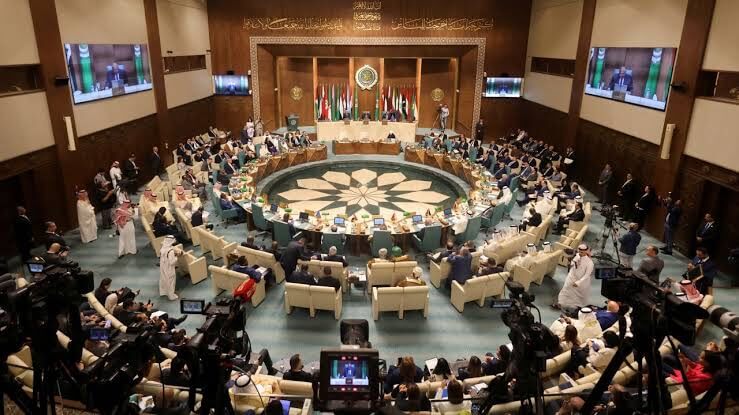On Sunday, Arab states voted to allow Syria to rejoin the Arab League, ending its diplomatic isolation more than a decade after being barred from the organisation for using ruthless force against its people.
According to Jamal Rushdi, a spokesperson for the Arab League’s secretary general, the decision was agreed upon during a closed meeting of foreign ministers at the Arab League’s headquarters in Cairo.
Overview
The decision to reinstate Syria’s membership in the Arab League was reportedly not unanimous, but decided by a majority vote in a closed session. The action comes only days before an Arab League conference in Riyadh, Saudi Arabia.
The Arab League stated that the “resolution of the Syria conflict is a step-by-step matter,” with the restoration of Syrian participation in Arab League meetings marking the first phase. The party backs both the “withdrawal of all foreign forces” and the “territorial integrity of Syria.”
According to Rushdi, the Sunday vote “does not signal the end of the conflict in Syria, but the beginning of an end.” The Syrian crisis, he said, “is not just a domestic conflict, but a regional and international conflict,” and since it impacts so many Arab nations, the Arab League “would like to be involved in the conflict’s resolution.”
Syria rejoins Arab League after 12-year absence https://t.co/xCVRcbTf1X pic.twitter.com/mE27PxvxLz
— China Xinhua News (@XHNews) May 7, 2023
The decision allows Syria to resume its participation in Arab League meetings right away. It seeks a resolution to the crisis brought on by the country’s civil conflict, including the flight of refugees to neighbouring countries and drug smuggling throughout the region.
While Arab countries, such as the UAE, have advocated for Syria and President Bashar al-Assad’s rehabilitation, others, particularly Qatar, have remained opposed to complete normalisation without a political settlement to the Syrian crisis.
In a resolution on Sunday, it was decided that a ministerial contact group would be formed by Jordan, Saudi Arabia, Iraq, Lebanon, Egypt, and the secretary general of the Arab League to communicate with the Syrian government to seek solutions to the issue.
Syria’s Suspension
Syria’s membership in the Arab League was terminated when Assad ordered a crackdown on protesters in March 2011, initiating a civil conflict that has killed about 500,000 people and displaced another 23 million to date.
The region is now normalising ties, as stakeholders are convinced that Arab nations benefit little by isolating Syria, as the US has advised. Proponents of engagement believe that refusing to deal with Syria implies disregarding that its government has effectively won the conflict.
Arab nations have recently been attempting to reach an understanding on whether to invite Assad to the Arab League summit in Riyadh on 19 May to talk about the pace of normalisation and the conditions under which Syria may be permitted to return. According to Ahmed Aboul Gheit, the secretary general of the Arab League, Assad is welcome to attend “if he wishes to.”
Earlier, the #UnitedStates criticized the #ArabLeague's readmission of #Syria into the body, yet it said it aligns with its #Arab allies on "ultimate objectives".#US https://t.co/Niqql44SPc
— Al Mayadeen English (@MayadeenEnglish) May 7, 2023
US Opposes Normalisation of Ties with Assad
US Secretary of State Antony Blinken reaffirmed to his Jordanian counterpart on Thursday that the US opposes the normalisation of the Assad government.
According to a statement from the State Department, “the US will not normalise relations with the Assad regime and does not support others normalising until there is authentic, UN-facilitated political progress in line with UN Security Council Resolution 2254.”
A US official stated that Blinken and other US officials had made similar calls in recent days to other top officials in several Arab nations to convey the same.
According to a US State Department official, Washington shares the interests of Arab allies in Syria, such as establishing security and stability. However, it is still “skeptical of Assad’s willingness to take the steps necessary to resolve Syria’s crisis.”
The US has insisted that without a comprehensive political conclusion to the war, it will continue to oppose al-Assad.
Russia Welcomes Move
Russia hailed the decision to reinstate Syria’s membership in the Arab League as an indication of Arab countries’ intent to conduct their own “independent policy on the global stage,” in an indirect jab at the US, which has been staunchly opposed to any normalisation with Bashar al-Assad’s regime.
Russian Foreign Ministry spokesperson Maria Zakharova said, “Moscow welcomes this long-awaited step, the logical result of the process, which has gained momentum, of returning Syria to the Arab family.”

